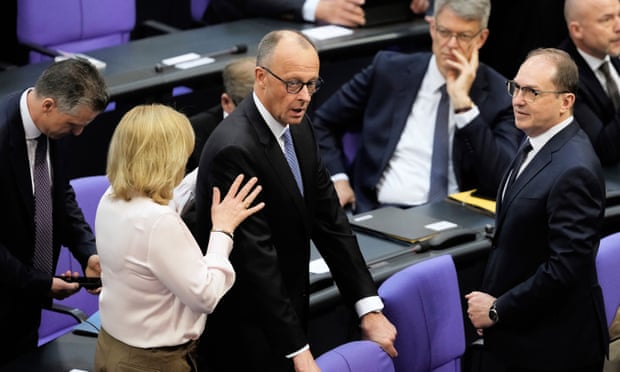Friedrich Merz's Bid for German Chancellorship Falters in Historic Parliamentary Vote

Merz's Chancellorship Bid Stumbles Amid Internal Coalition Dissent
On May 6, 2025, Friedrich Merz, the leader of Germany's Christian Democratic Union (CDU), faced an unexpected setback in his quest to become the country's next chancellor. In the Bundestag's first round of voting, Merz secured only 310 votes, falling six short of the 316 needed for an absolute majority. This marks the first time since World War II that a chancellor candidate has failed to be elected in the initial parliamentary vote.
Coalition Majority Proves Insufficient
Merz's CDU, in coalition with the Christian Social Union (CSU) and the Social Democratic Party (SPD), held a combined 328 seats in the 630-member Bundestag. The secret ballot's outcome suggests internal dissent, with at least 18 coalition members either voting against Merz or abstaining. The exact reasons for this discord remain speculative, but the result highlights challenges within the coalition's unity.

Implications for German Politics
The failed vote introduces a period of political uncertainty in Germany. The Bundestag now has 14 days to elect a chancellor. If no candidate secures an absolute majority in subsequent rounds, the president may appoint the candidate with a relative majority or dissolve the Bundestag, prompting new elections. This situation delays the formation of a new government and the implementation of proposed policies, including significant defense spending increases and economic reforms.
Opposition Reactions and Future Prospects
The far-right Alternative for Germany (AfD), now the largest opposition party, seized upon the coalition's failure, calling for fresh elections and criticizing the government's instability. Merz, who had campaigned on promises of economic revitalization and stricter migration policies, faces the challenge of consolidating support within his coalition to secure the chancellorship in upcoming votes.
Conclusion
Friedrich Merz's initial failure to secure the chancellorship underscores the complexities of coalition politics in Germany. As the Bundestag prepares for subsequent votes, the country's political landscape remains in flux, with the potential for significant shifts depending on the coalition's ability to present a united front.

MNF
Content Creator at MNF
Passionate about delivering high-quality content on technology, news, and more. Follow me for the latest updates and insights.
Leave a comment
Share your thoughts and comments on this post.
Comments
There are no comments. Be the first to comment 😊💡